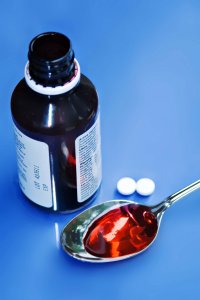Biologicals and the current obstacles
Biologicals are the future of Pharma. With their tremendous potential to address various unmet medical needs, they make up the major part of the pipelines of Pharma companies. However, there are some issues with which pharmaceutical companies developing biologicals continue to struggle.
They are difficult to make, and they are hard for patients to take. This article specifically deals with the last issue. Both patients and manufacturers prefer that drugs can be taken orally.
For the patients, the ease and convenience of oral administration are of great importance.
For manufacturers the production costs for oral dosage forms are often lower and they are also the easiest form for the further optimization of drug delivery.
Why are not all biologicals made as pills or syrups then? There are a few physical and chemical obstacles that the developers do not seem to overcome. These are the high molecular weight, hydrophilicity, and instability of large biomolecules.
First, the absorption across the gut seems to be a problem. Biologicals are often quite large molecules, making them difficult to diffuse across the epithelial layer. Moreover, they often do not have the physicochemical properties to be therapeutically active when orally administered. For example, the polar surface of peptides ensures that they are not lipophilic enough to be absorbed. Secondly, biologicals are often sensitive to enzymatic and chemical degradation in the gut. The acidity of the stomach as well as the enzymatic activity in the intestines is often a problem. The third challenge is the stability of the biologicals. Temperature, pH, and light can affect the molecules. This can be a problem especially for manufacturing and storage.
to be a problem. Biologicals are often quite large molecules, making them difficult to diffuse across the epithelial layer. Moreover, they often do not have the physicochemical properties to be therapeutically active when orally administered. For example, the polar surface of peptides ensures that they are not lipophilic enough to be absorbed. Secondly, biologicals are often sensitive to enzymatic and chemical degradation in the gut. The acidity of the stomach as well as the enzymatic activity in the intestines is often a problem. The third challenge is the stability of the biologicals. Temperature, pH, and light can affect the molecules. This can be a problem especially for manufacturing and storage.
Fortunately, plenty of solutions are being developed, such as the following examples:
-
Biologicals can be encapsulated and / or coated with permeation enhancers or enzyme inhibitors. Encapsulation protects the active against degradation while enzyme inhibitors could help to prevent chemical and enzymatic degradation. Permeation enhancers can help circumvent the absorption problems, but they unfortunately have the potential to damage the mucosa, which could result in harmful matter entering the blood, such as gut bacteria and their toxins.
-
Modifying the structure of biomolecules is another option. A range of technologies have been explored, including the use of polymers, the formation of nanoparticles, and their inclusion in lipid systems. Depending on the molecule or application, one technology is better suited than the other. Especially the combination of these 3 together seems to work effectively. Tailored receptors in the form of polymers attached to encapsulated proteins as well as the small size of nanoparticles result in a better absorption across the gut. Lipid systems can both enhance the permeability of biologicals and protect them against hydrolysis and enzymatic degradation.
-
Next, bacteria that are commonly found in the intestine could be modified through genetic engineering so that they produce and secrete the active pharmaceutical ingriendients (APIs) in a high concentration. This way the produced biologicals evade degradation, by for example saliva.
- Applied Molecular Transport (AMT) is another promising oral technology. Hereby biologic APIs are covalently linked to poorly immunogenic transporter proteins that actively transport them across the epithelium.
The oral delivery of biologic APIs is often called the “holy grail” of pharmaceutical drug delivery. It is exciting to see that more and more innovative companies emerge in the field of biotherapeutics. The stunning wide range of different product lifecycle strategies leads to a stimulating and dynamic area of research and investment for the coming years.
sources:
http://www.pharmtech.com/oral-delivery-biologic-apis-challenge-continues?pageID=2
https://www.americanpharmaceuticalreview.com/Featured-Articles/345540-Opportunities-and-Challenges-in-Biologic-Drug-Delivery/

